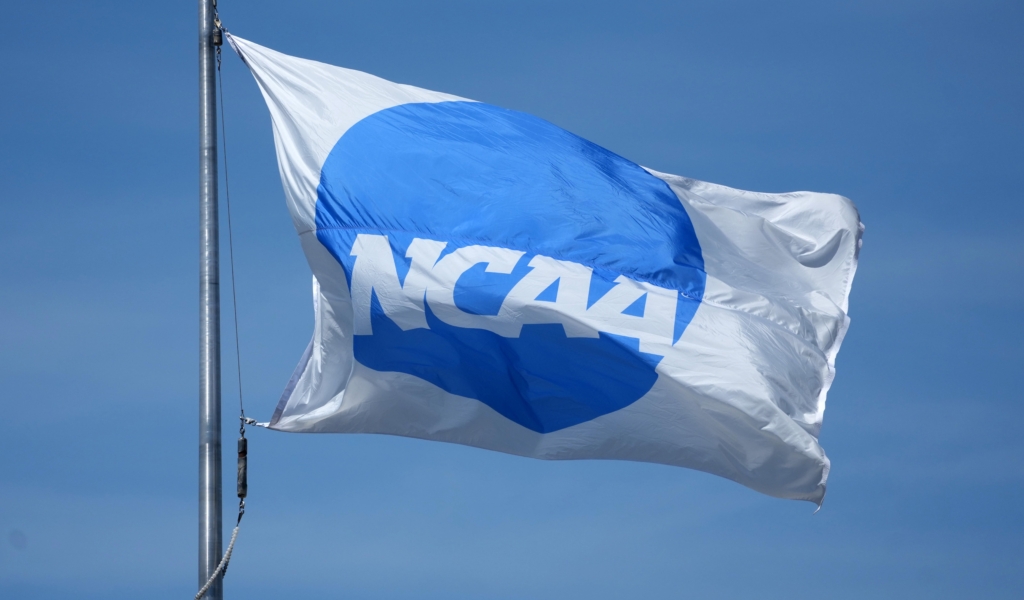The Division I Administrative Committee on Wednesday adopted a proposal that would permit student-athletes and athletics department staff members to bet on professional sports. The rule change must be approved by all three NCAA divisions. Divisions II and III are expected to consider the proposal during their respective meetings at the end of October. If approved by all three divisions, the rule change will be effective Nov. 1.
The NCAA prohibition against betting on college sports — and sharing information about college competitions with other bettors — remains in place. The change also would not impact rules prohibiting advertising and sponsorships associated with sports betting for NCAA Championships.
The committee, which was directed by the Division I Board of Directors to make the change, emphasized in approving the rule change that the action is not an endorsement of sports betting, particularly for student-athletes.
The rule change was also supported by the Division I Student-Athlete Advisory Committee, which requested that the change come with continued and enhanced education and support for college athletes to prevent problem gambling among student-athletes.
The NCAA already engages in significant efforts to provide educational resources available to student-athletes about the impact of sports betting, including:
- The NCAA Sport Science Institute released Harm Reduction Considerations for Gambling & Sports Betting in Collegiate Sports earlier this year. The document includes available sports betting resources, including the NCAA Mental Health Best Practices.
- More than 100,000 student-athletes, coaches and administrators have participated in the NCAA’s education efforts with EPIC Global Solutions.
- The NCAA has launched an e-learning module for student-athletes on problem gambling harms and the integrity risks associated with sports betting. To date, more than 50,000 student-athletes and prospects have watched and completed the module, including the post-learning assessments, spanning six continents, 94 countries and 49 states.
- The NCAA conducts research to better understand gambling behaviors on college campuses and among student-athletes. Data from one survey indicated that 67% of college students engage in sports betting on a somewhat regular basis.
“Abstinence-only approaches to social challenges for college-aged individuals are often not as successful as approaches that focus on education about risks and open dialogue,” said Dr. Deena Casiero, NCAA chief medical officer. “The NCAA will continue to collaborate with schools to help them provide student-athletes with meaningful education and other resources for student-athletes who choose to participate in betting on professional sports. This harm reduction approach gives schools an opportunity to help student-athletes make educated decisions, prevent risky behavior and seek support without fear of impacting their eligibility.”
The change comes as the NCAA enforcement staff’s caseload involving sports betting violations has continued to increase in recent years, in which most of the violations the staff are pursuing involve conduct that directly impacts the integrity of college sports. The NCAA uses a layered strategy with integrity monitoring services to monitor more than 22,000 college sports contests each year to detect unusual line activities or other issues.
In September, the NCAA Committee on Infractions released the first infractions cases for former men’s basketball student-athletes who bet on their own games and in some cases engaged in game manipulation for sports betting reasons. The enforcement staff is also in the process of alleging similar violations for another 13 student-athletes from six other NCAA schools, with additional investigations ongoing.
“The enforcement staff continues to investigate and resolve cases involving sports betting quickly but thoroughly,” said Jon Duncan, NCAA vice president of enforcement. “Enforcement staff are investigating a significant number of cases that are specifically relevant to the NCAA’s mission of fair competition, and our focus will remain on those cases and those behaviors that impact the integrity of college sports most directly.”
—News release courtesy of NCAA PR (NCAA.org)
